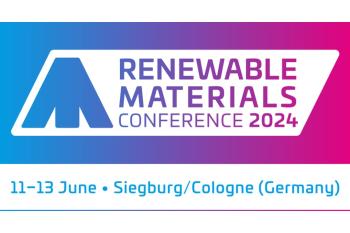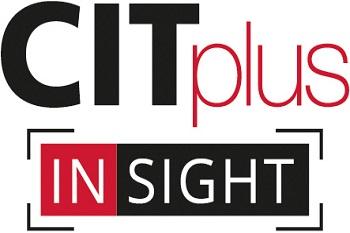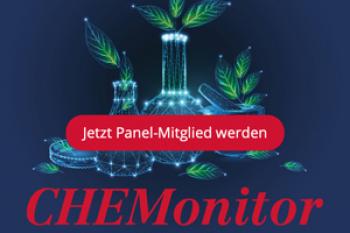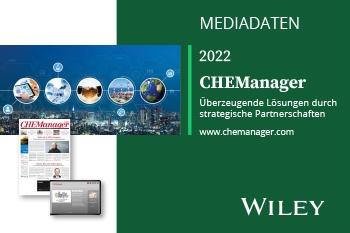Expert Interview: Michael Quirmbach, CordenPharma
The Coronavirus Crisis: Challenges and Opportunities for CMOs, CDMOs and CROs
The ongoing pandemic is putting pharmaceutical R&D strategies to the test and also challenging manufacturing planning and supply chain management. Particularly in this industry segment, the supply chain is global, complex and interconnected. Each link must be strong enough to ensure that the road from lab to final drug product is as smooth as possible, even under the most difficult circumstances.
In addition to the pandemic, the growing threat of a no-deal-Brexit amid old and new trade conflicts and increasing protectionism, is putting even more stress on companies operating in the pharma sector.
In cooperation with Wombat Capital, a cross-border investment bank, CHEManager asked executives and experts of CMOs, CDMOs and CROs operating in the pharmaceutical sector to share their opinion on current challenges for their industry and how these challenges may influence changes in their market.
What in your opinion and from your perspective are the main impacts of the coronavirus pandemic on the drug supply chains?
Michael Quirmbach: The Covid-19 pandemic showed the fragility of global pharma supply chains, resulting in companies and governments having to now carefully reconsider and rethink their current strategy. Thus, while the past focus was mainly on cost reduction, the future focus will be a much stronger shift towards security of supply and the resiliency of the supply chain. Although the term resilience of the supply chain is becoming a new buzz-phrase which is rather vague and open to interpretation, it generally means that suppliers will face more scrutiny and the need for a deeper understanding about the sourcing behind their partners and suppliers.
For example, companies are sourcing raw materials and key starting materials from suppliers who might source materials or components from others, who in turn might source from others, and so on. When one part of this network is exposed to risk, all parts are vulnerable to disruption. Therefore, the growing complexity is driving a need for a much more thorough understanding of how the supply chains have been designed, the cornerstones of their foundation, and how efficiently they have been constructed to manage risk.
Many Western CDMOs have already shifted operations back to the USA and Europe as intensive business activity in China has driven up labor costs. In addition, national policies, trade-related developments, such as Brexit and the US-China dispute, and impacts of pandemics are likely to require repatriation of at least part of the supply chain in many countries. Could CMOs/CDMOs be beneficiaries of restructured supply chains?
M. Quirmbach: The answer is certainly yes, and it is expected that pharma & biotech companies will put significantly more emphasize on this topic both in the short and long-term. In particular CDMOs who possess assets in key geographic locations in the Western hemisphere should benefit. The US government has already called for the reshoring of global supply chains, or even decoupling from China. These efforts are not only limited to the US – e.g. France has called for greater industrial sovereignty of Europe in light of economic vulnerabilities created by the pandemic. Other recent examples worth mentioning here is the partnership between Sandoz and the Austrian government to boost integrated antibiotics production in Europe. As part of the joint plan, the Austrian government would provide or coordinate public funding worth about €50 million towards the total investment, with expectations that this initiative will enhance the European-based manufacturing of essential medicines. We can expect to see more of these examples in the coming month within Europe and the US.
What do you think the impact of the repatriation of the drug supply chain will have on the M&A activity in the CMO/CDMO industry? Do you think that this would create an impact on valuations?
M. Quirmbach: As the consolidation of the highly fragmented CDMO industry continues through M&A activities, the repatriation of the supply chain will, for sure, additionally contribute to it with an even stronger emphasis on companies with assets & technology based in the US and EU. Companies with the right geographical and technological footprint will therefore have higher valuations compared to those prior to the Covid-19 pandemic.
Has the inability to hold face-to-face meetings with prospective clients and conduct client visits to sites affected your new business development since the outbreak of the coronavirus pandemic?
M. Quirmbach: Although we continue to see a good amount of new inquiries and projects coming our way, many of them stem from discussions we initiated prior to the pandemic or are based on our strong existing customer base including major strategic global accounts. To approach new customers today is certainly more difficult for our sales team, in large part due to the inability to hold face-to-face meetings. To circumvent this, we have created a network-wide digital initiative to bring customers closer to our facilities through virtual site tours and videos.
EU regulatory authorities and the FDA have issued guidance on conducting clinical trials during the Covid-19 outbreak. Have you as a CMO/CDMO been affected by these changes?
M. Quirmbach: We have not been directly impacted by this guideline, but some of our customers have experienced delays in starting their clinical trials, or even have made the conscious decision to postpone them, which resulted in the cancellation of a manufacturing slot.
The race is on to develop treatments and vaccines against Covid-19, and so is the need to assure supply of these potential drugs and vaccines. Pharma companies are leveraging their internal manufacturing networks but are also partnering with CMOs/CDMOs. What supply and manufacturing strategies/alliances are in play?
M. Quirmbach: There are a number of publicly announced collaborations in place, but one could assume that many more have already been initiated or are currently being negotiated that have not been announced yet, considering the vast pipeline of various vaccines across the unprecedented efforts by the pharma industry. A few known collaborations are summarized below:
Moderna announced various collaborations with CDMOs in support of its vaccine candidate, mRNA-1273, which has progressed to Phase III clinical trials. Thus, Moderna is building up drug substance manufacturing capacity through its CDMO partner Lonza, which is adding manufacturing lines in New Hampshire and Visp, Switzerland. Because the mRNA is encapsulated in lipid nanoparticles, it requires specific proprietary lipid excipients, which are being manufactured by CordenPharma through our manufacturing network in Switzerland, France and the US. Other collaborations for the drug product manufacturing were signed with Catalent and Rovi Pharma Industrial Services.
Novavax announced a manufacturing partnership with CDMO Fujifilm Diosynth Biotechnologies (FDB) to make the bulk drug substance for NVX-CoV2373 at its site in Morrisville, NC, which began production in July. AGC Biologics was contracted to manufacture the Matrix-M Adjuvant to expand Novavax’ capacity, while the PolyPeptide Group (PPL) is supporting the manufacturing of critical intermediates for the Matrix-M Adjuvant.
Emergent BioSolutions is supporting Astra Zeneca in the commercial drug substance manufacturing of the adenovirus vector-based vaccine candidate, AZD1222, which was co-invented by the University of Oxford and its spin-out company, Vaccitech, and licensed by AstraZeneca. Also Emergent announced a collaboration with Janssen Pharmaceuticals for large-scale drug substance manufacturing for Johnson & Johnson’s investigational SARS-CoV-2 vaccine, Ad26.COV2-S, recombinant based on the AdVac technology. Emergent will provide CDMO services to produce the drug substance on a large-scale over the next five years.
The CMO/CDMO industry has managed to support efforts to develop vaccines and therapeutics for Covid-19 despite already being at a high level of utilization. What made that possible?
M. Quirmbach: The future production of multi-million vaccine doses will require manufacturing spread across multiple sites, where seamless network integration is key for innovators and CDMOs working very closely together to meet the anticipated demand. The benefit and success of the major CDMO partners to adapt to these changing market environments will rely on the ability to react fast, provide flexibility and quickly increase capacity by ramping up production or even constructing new facilities / lines. This strong collaboration among the innovators and suppliers exemplifies what is achievable, if all parties are working together towards one common goal!
“Emerging”, “virtual” and other small (bio)pharmaceutical companies are driving the discovery and development of new drugs but are mostly dependent on the availability of financing – which could become more restricted due to the economic downturn cause by the economic and epidemiologic disruptions to the global economy. As emerging biopharma companies are important customers of CMOs/CDMOs, how is this going to affect your business?
M. Quirmbach: This could potentially impact us during 2021, especially in terms of new business, as emerging biotechs and virtual companies will require re-financing, but were not able to progress their programs during the last year due to delayed clinical trials.
For the biopharma CMO/CDMO industry, the pandemic crisis has created great opportunities. What is your opinion on whether and to what degree the CDMO industry will enjoy long-term benefits from its role in tackling the current crisis?
M. Quirmbach: The CDMO industry will continue to benefit from the crisis – short and long-term – as pharma & biotech companies engage in the ongoing search for agile, reliable and competent partners to meet the increasing demand for drug substance, drug product and ideally, integrated supply services. Also, as the NCEs are showing ever-increasing complexity, this will require various technologies, leading to greater and greater requirements to outsource service providers for the most optimal use of pharma’s know-how, resources and infrastructure.
Your broader corporate strategy is to offer fully integrated supply (APIs, drug products, packaging, and logistics), including development and manufacturing of highly potent and oncology products. How do you implement this strategy?
M. Quirmbach: CordenPharma’s company strategy is guided by our four distinctive technology platforms and driven by our customers’ requirements. We keep a close eye on any potential gaps in our ambitious strategy which could be turned into benefits, all aimed at our mission to be a leading CDMO partner with fully integrated end-to-end services. Over the last few years, we have expanded our capabilities by both heavily investing in technology, development and manufacturing capacity expansion, as well as through focused acquisitions. As it relates to the latter, we carefully analyze the assets with a clear focus and ask ourselves if this adds value to our service offering, and ultimately to our customers. All this has been achieved through the strong commitments by our shareholder International Chemical Investors Group (ICIG).
This interview was conducted in cooperation with Wombat Capital, a cross-border investment bank providing mergers and acquisitions and strategic advisory services. With offices in New York and Paris, Wombat Capital focuses on the CDMO/CRO and pharma outsourcing sectors.












